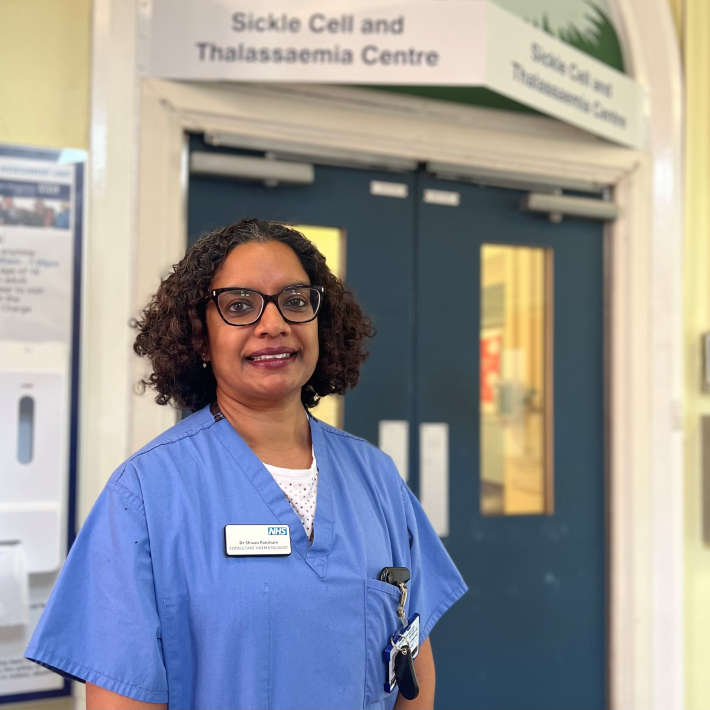"Working as part of a multidisciplinary team across various specialities is very rewarding. This means we are all applying our varied expertise together for patient care."

My hope is for Thalassaemia care to have better outcomes in terms of reduced complications, improved quality of life and further improvements in long term survival.
